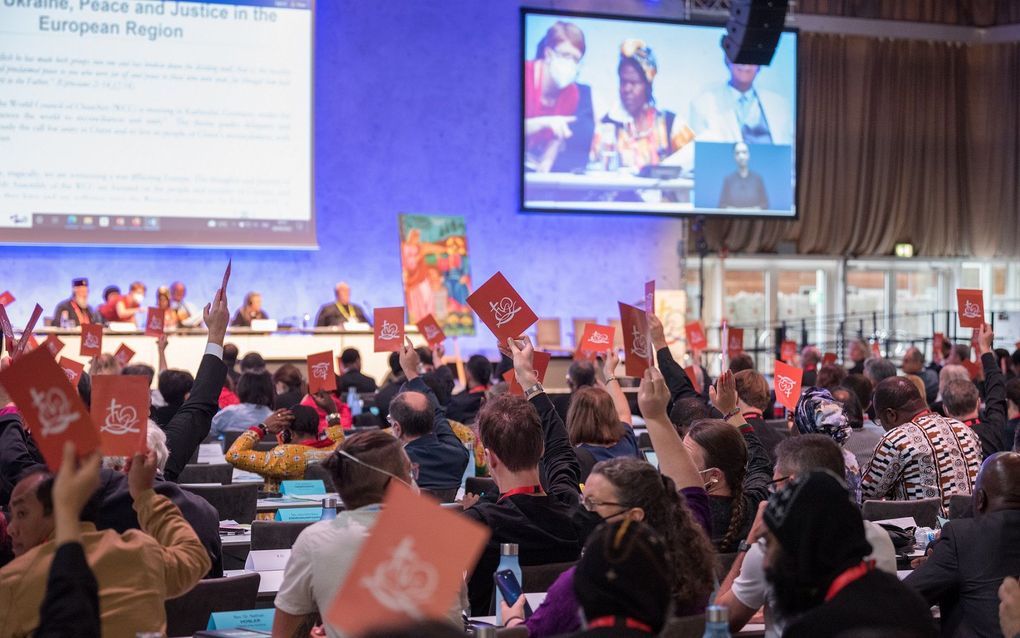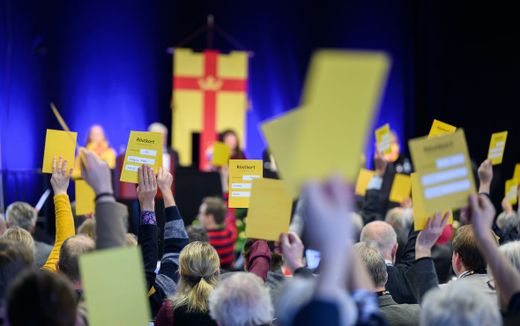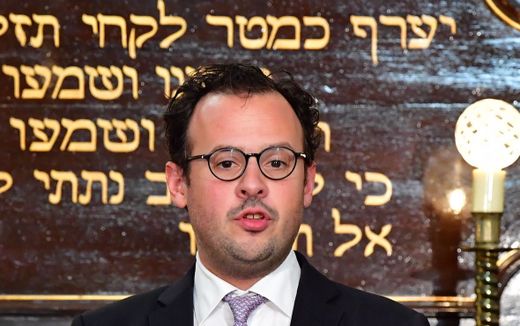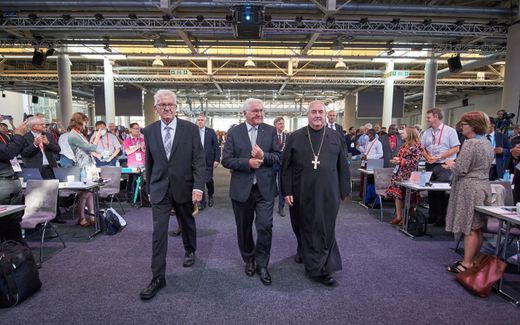World Council of Churches refuses to call Israel an apartheid state

Church representatives vote at the World Council of Churches in Karlsruhe. Photo WCC, Albin Hillert
European Union
The eleventh assembly of the World Council of Churches is over. For days, representatives of several churches spoke, prayed and celebrated together. However, the final words about Ukraine and Israel show that unity is still a long way to go.
The meeting in Karlsruhe, Germany, lasted eight days and was attended by 655 delegates from 352 churches in 120 countries. And then there were several thousand other visitors at the seven-yearly assembly. That was reported by the Reformatorisch Dagblad.
At the assembly, the emphasis has long since ceased to be on the search for institutional unity between churches. However, there is always a final document on the table. This time, the member churches are called to "ecumenism of the heart."
The document says that the search for true unity is always based on love. That is "the love of God revealed in Christ and lived in the Holy Spirit, a love that moves us, and moves the world, towards reconciliation and unity."
At the same time, the "true aim of Jesus Christ, and with Him, all Christians remain to achieve a visible community, one in holy unity."
The emphasis at the World Council of Churches meeting was mainly on meeting and acting together. The word 'pilgrimage' was mentioned several times. In the document "A Call to Act Together", the delegates stated that the love of Christ gives people the strength to undertake together "a pilgrimage of justice, reconciliation and unity".
Ukraine
The discussions that led to a declaration on the war in Ukraine were a little more difficult. However, the text leaves nothing to be desired in terms of clarity: "This meeting strongly reaffirms the position of the Central Committee and rejects the illegal and unjustified war. As Christians from different parts of the world, we renew our call for an immediate ceasefire to stop death and destruction, and for dialogue and negotiation to bring about a lasting peace." To add strength to the statement, words like "rejects" and "call" are printed in bold.
The Central Committee - the governing body of the World Council of Churches - already distanced itself in solid terms earlier this year from the Russian invasion of Ukraine. Still, it did not want to go so far as to remove the Russian Orthodox Church from its membership. Delegates from Russia were, therefore, present at the assembly.
German President Frank-Walter Steinmeier threw more oil on the fire at the assembly last week by criticising the World Council's attitude and addressing the Russian delegation directly. "The leadership of the Church has joined in the crimes of the war against Ukraine," he told the Russians. "It is currently leading the entire Church on a dangerous and even blasphemous path that goes against everything they believe. This totalitarian ideology, disguised as theology, has led to the complete or partial destruction of so many religious sites on Ukrainian territory."
Apartheid
The final document on a just peace in the Middle East also gave rise to discussion. The most significant bone of contention was whether Israel's policy towards the Palestinians should be called 'apartheid' under international law. The World Council is regularly criticised for being in favour of the Palestinians.
In the statement, the World Council unequivocally expresses its "disagreement on this issue". "Some churches and delegates strongly support using this term as an accurate description of the reality of the people of Palestine/Israel and the position under international law, while others find it inappropriate, unhelpful and painful."
Member churches, however, are called to "continue to wrestle" with the relationship between Israel and the Palestinians and to work together "on the journey of justice and peace."
Dr Heinrich Bedford-Strohm, former council president of the Evangelical Church in Germany, was elected moderator (chairman) of the World Council of Churches central committee on Thursday. "The church is always universal," he said after his appointment. "She can only bear witness to Jesus Christ if we make this visible: we are one church in this global world."
Investigation cancelled in Sweden
The debate on Israel and the Palestinians is not new in churches. Last year, the Church Conference of the Church of Sweden demanded an investigation of Israel to see whether the state was guilty of apartheid. However, recently, it turned out that the investigation was cancelled altogether, as Dagen reports. The reason is that interest seems to have faded. The 14 bishops who decided on the research regretted their choice from last year.
Related Articles







